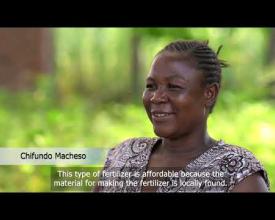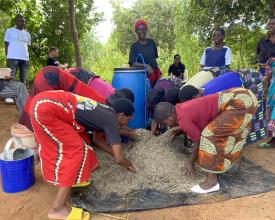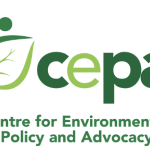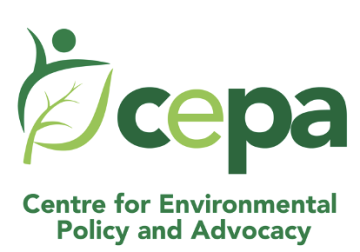
BIOFERTILIZER PRODUCTION FOR IMPROVED SOIL HEALTH
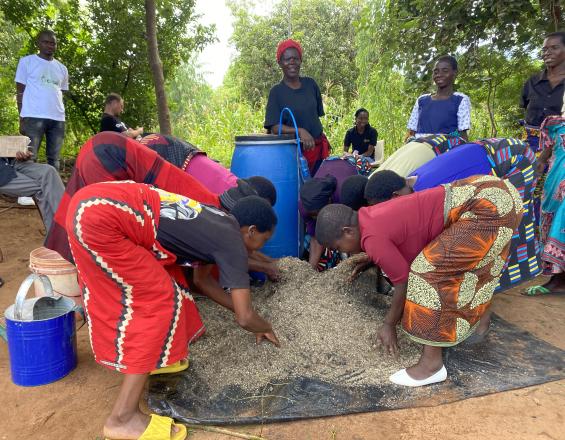
In Mulanje and Blantyre, farming communities are leading organic soil restoration efforts with training and support from CARD. Soil degradation is caused by radical deforestation, slash and burn leading to bare soils, monocropping, tilling and soil disturbance, contamination through inappropriate use of synthetic chemical fertilizers and pesticides, as well as climate change. To combat this, CARD equips farmers with the knowledge and materials to produce Mbeya fertilizer—a mix of manure, husks, wood ash, and minimal mineral inputs—helping rebuild soil organic matter. Farmers also learn how to prepare biofertilizers using locally available resources like manure, charcoal, molasses, and nutrient-rich leaves, fermenting them into powerful soil enhancers. These sustainable solutions boost soil health and enhance crop yields and quality while also creating income opportunities, as trained farmers can use and sell organic fertilizers. Heavy mulching and integration of trees offer a full solution to the soil crisis.
Impacts
At least 8 communities and 160 smallholder farmers CARD has trained are producing, teaching and selling their own Mbeya and biofertilizer. The farmers report farming healthier and more resilient crops, the concept is slowly spreading to neighbouring communities as well. Apart from the smallholder farmers, at least 4000 individuals have watched a CARD documentary on the current impact of biofertilizer production in two communities within Mulanje District. Another at least 2100 individuals have received a Policy Brief on Fertilizers developed by CARD.
Based on the feedback received from assessments, monitoring visits and the general public, the majority of Malawians would benefit from skills and resources to prepare organic fertilizers.
According to Afrobarometer 2025, 71% of Malawians believe that the Affordable Input Programme (AIP), which aims to support smallholder farmers by offering them handouts such as mineral fertilizers and hybrid seeds, are favouring other groups than smallholder farmers.
Instead, the great majority (90%) advocates for loans for farmers’ clubs. This momentum can be used to increasingly promote organic fertilizers to boost soil health and production among smallholder farmers in Malawi and the region.

